
A Tribe Called Quest's We Got It From Here... Thank You 4 Your Service - Unity is Power
Nearly 2 decades after their previous album, renowned hip-hop group A Tribe Called Quest (ATQC) got together for a final body of work called ‘’We Got It From Here… Thank You 4 Your Service’’ (abbreviated WGIFH... TY4YS). After their 18 year gap, a socio-cultural conscious group such as Tribe certainly had enough material to write about to spark discourse through music. This holds especially true when you consider that the years leading up to the albums release in 2016 consisted of even extremer polarization among people on the left, right, progressive and conservative spectrum.
While a lot can be said about the excellent progression of Tribe’s sound, production and rhyming of the album, this review aims to focus on identifying the socio-cultural elements within the music. A Tribe Called Quest has been known for including these thoughtful aspects into their music ever since their debut in the early 90s. Their earlier work centred around witty, fun hip-hop beats and rhymes alongside an afro-centric narrative driven by the fight against racial inequality and by empowering minority communities. This ''witty & fun''' element especially is what makes ATQC so appealing across generations. While they bring intelligent and thoughtful conversations to the table, there always lingers a light-hearted and carefree mood throughout their work which eliminates it from being too heavy on the mind.
These components are still present on WGIFH… TY4YS with more expanded and amplified views, while somehow being more focussed than ever. In particular, this review will highlight and dissect some lyrics on the album where topics such as minority injustice, tensions between groups in society, social discourse inclusion and a hopeful sense of generational trust are brought to the foreground. At the time of writing this it is November 2021, which makes it the 5th anniversary of this album. In many ways, this is a reflective retrospective review of the album's importance in hip-hop and music in general.
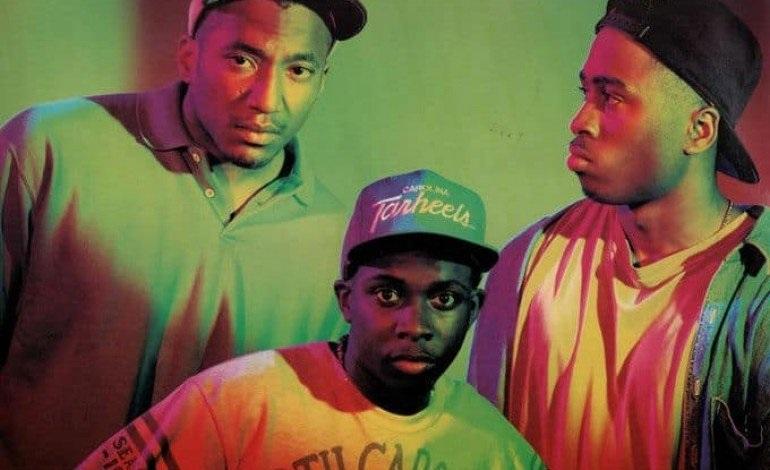
Figure 1: ATCQ's in the early 90's - Q-Tip (left) Phife Dawg (middle) and Ali-Shaheed Mohammed (right)
ATCQ’s History and the lead up to the album
Before looking at their lyrics in detail, it is important to know some of A Tribe Called Quest’s history in music and in particular hip-hop culture. A Tribe Called Quest started in 1985 as a group of four friends; rapper/producer Q-Tip, rapper Phife Dawg, rapper Jarobi White and DJ/producer Ali Shaheed Mohammed with the desire to break into the rising hip-hop world. In 1990 they released their first album which became a critical and commercial success and spawned international hits such as ‘’Can I Kick It?’’ and ‘’Bonita Applebum’’. It was not until a year later though with their sophomore album ‘’The Low End Theory’’ that A Tribe Called Quest shaped their musical identity and forever cemented themselves with hip-hop history.
The Low End Theory brought smoothness to hip-hop music with jazz samples and swinging basslines, supported by quick-witted lyricism which reflected on life as a black man in New York City. Where some hip-hop records focussed on glamour and boasting and others on nothing but rough story-telling, A Tribe Called Quest managed to find a balance between the beats, rhymes and their lives. While they rhyme not as complex as some of their contemporaries, a broad understanding on a socio-cultural and political level can be seen throughout their entire discography. This combination of intellectual discourse, street smarts and humour, carried by jazzy vibes, made a A Tribe Called Quest one of the most celebrated and essential hip-hop acts of all time.
At the end of the millennia, A Tribe Called Quest took their decades long break after their album The Love Movement, however they each continued to progress their musical paths independently. While it could be said that in many ways the world has improved since the 90’s, humanity has also suffered many old and new global issues. With the rise of social media, discourse surrounding injustices, such as the Black Lives Matter or LGBTQ+ movements have gotten more attention. This increase of attention has let to a lot of support, but also to a lot of unfortunate opposition. With the societal climate of the mid 2010’s in mind, it was ironically the best timing for the return of a group such as A Tribe Called Quest.
This holds especially true if you consider the increased alt-right parties together with the rise of the Trump administration, which are movements that strongly oppose a lot of values that Tribe’s music calls for. Lastly, it should also be noted that during the recording process of ‘’We Got It From Here… Thank You 4 Your Service’’, ATCQ member Phife Dawg passed away due to complications with diabetes. This album was intended to be their last, however this became all but certain after the death of Phife. Fortunately, he recorded a lot of vocals for the album and this project also stands as a tribute towards the legendary MC.
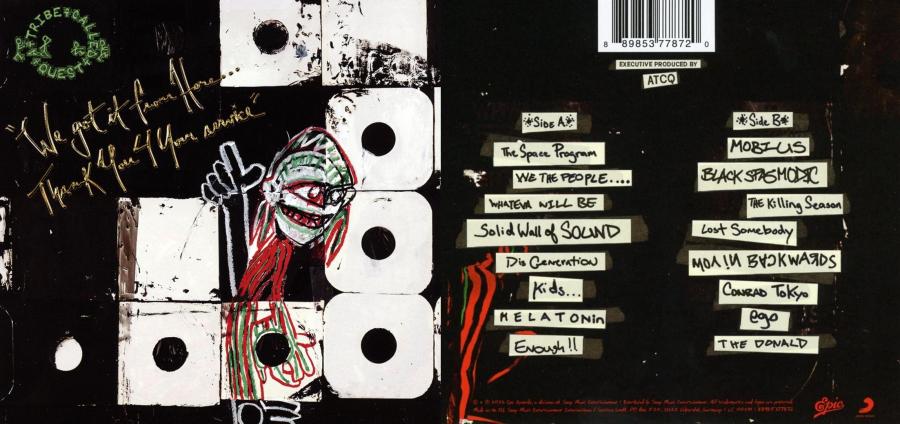
Figure 2: Cover artwork and tracklist of ''We Got it From Here... Thank You 4 Your Service (2016)
Lyrical Breakdown: The Space Program, We The People, Dis Generation & Conrad Tokyo
In order to identify these relevant socio-cultural aspects in ATCQ’s final album, this analysis will zoom in on specific songs, dissecting some important lyrics. In particular the songs: The Space Program, We the People, Dis Generation and Conrad Tokyo.

Figure 3: The Space Program Highlighted Lyrics
The Space Program - Track 1
The album starts off with the song The Space Program. The record is a triumphant celebration of the jazzy sonics that Tribe is recognized for and features all three rappers on the track, even Jarobi who had been absent of the group since the early 90’s. The Space Program centres around a creative yet critical metaphor for gentrification which extends to a broader perspective of injustice. This narrative folds out wonderfully as the track progresses.
There are two hooks to the song: The first hook calls for unity among the oppressed minorities by chanting that we ‘’Gotta get it together forever, let’s make something happen’’. The other hook takes the perspective of the people in power, of those who oppress the minorities, this is where the clever metaphor comes in, essentially saying that there is no option for the oppressed, especially the black community, to be part of a future ‘’Space Program’’. A space program is the idea that in the future humanity will start colonizing different planets and ATCQ uses the concept to humourlessly make fun of an unrealistically ambitious idea like that when in reality so many people on Earth are still suffering.
At the latter end of Q-Tip’s verse, he states: ‘’imagine if this shit was really talkin’ about space, dude’’, which references how the conversation of people going to space is so far out of the question when people live in poverty, ‘’no matter the skin tone, culture or time zone’’. The song ends with the return of the first hook however, which yet again calls for unity and this sets a hopeful tone to the album, even despite all the social issues.
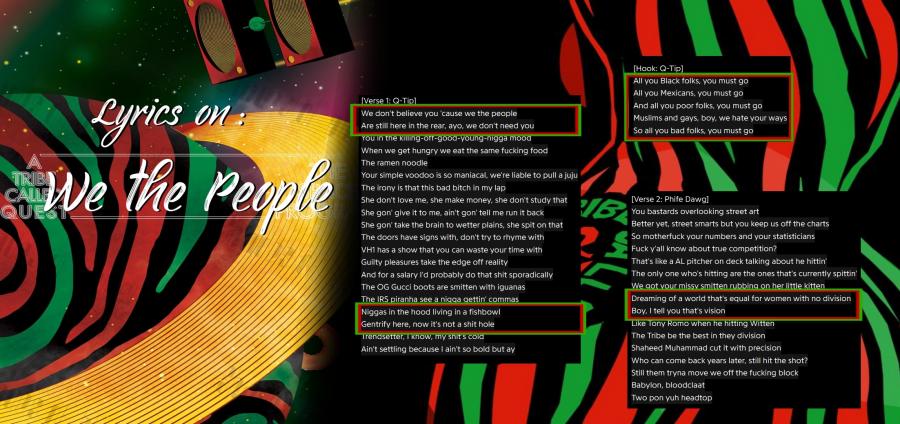
Figure 4: We The People Highlighted Lyrics
We The People - Track 2
In the next song We The People, this narrative of unity is continued. What is particular notable about the lyrics in this record is the sense of including many categories of mistreated minorities in the world. The chorus of this record yet again takes the perspective of the prosecutors, in particular of alt-right extremists. The hook mentions minorities in order ‘’All you Black, Mexicans, poor people must go. Muslims and gays, boy we hate your ways’’, referring to how radical people do not wish to have these types of people in society.
Phife Dawg also mentions how these issue extends to gender by stating: ‘’dreaming of a world that’s equal for women with no division, boy I tell you that’s vision’’. Hip-hop music usually puts racial issues at the centre of this conversation and while this is proudly part of the essence of hip-hop, it must also be applauded when the narrative is extended to a majority of minorities.
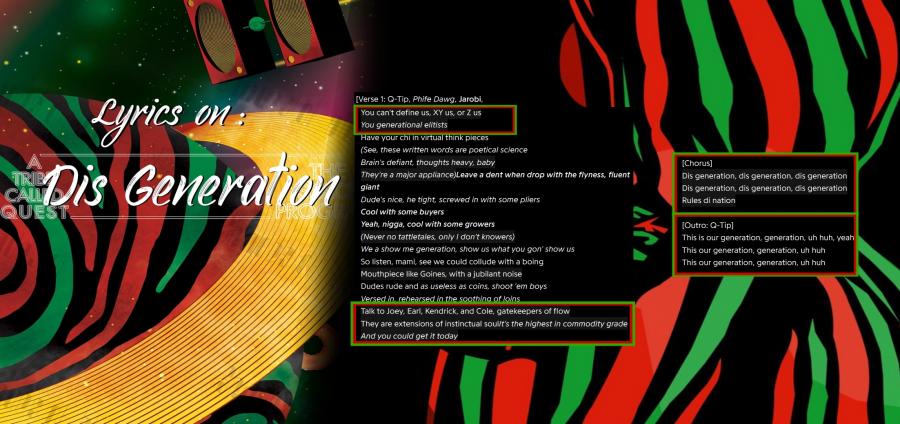
Figure 5: Dis Generation Highlighted Lyrics
Dis Generation - Track 5
Inclusion and unity seems to be the driving force behind this album and that message only gets strengthened on the next song Dis Generation. On this track, ATCQ makes some bold statements on the generational gap of the world. This refers to the perceived gap among younger, middle-aged and older people that separates common beliefs and values.
Frequently different generations of people blindly criticise each other, which in reality only leads to further division. On Dis Generation, Tribe points out this notion by saying how these generational beliefs polarizes us more, which ultimately is inefficient for a better progressing world: ‘’You can’t define us, XY or Z us, you generational elitists’’.
The group even extends this generational support to the hip-hop community. As a veteran hip-hop act, A Tribe Called Quest could have stated on record how there is a new generation of more contentless rappers, however they completely avoid a claim like that and instead continue to directly shout out some artists of the newer wave that do hold true to hip-hop’s spirit: ‘’Talk to Joey, Earl, Kendrick and Cole, gatekeepers of flow, they are extensions of instinctual soul’’.
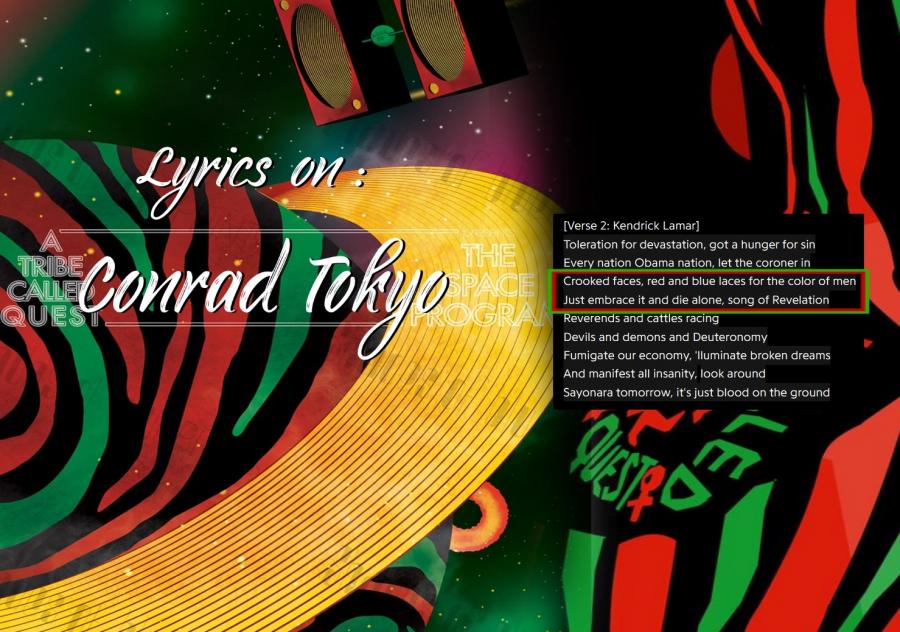
Figure 6: Conrad Tokyo Highlighted Lyrics
Conrad Tokyo - Track 14
Kendrick Lamar even makes an appearance on this album, on the song Conrad Tokyo. Now at this point, it is difficult to call Kendrick an artist who is new to the scene, as he himself has perhaps made the biggest impact in the socio-cultural/political sphere of music in the 2010’s. That being said, he is still seen as an artistic leader for the younger generation and his inclusion on this album suggests that ATCQ’s agrees. Kendrick’s verse is short but beautifully poetic statement on police brutality, which fits his own messages reflected on his project ‘’To Pimp A Butterfly’’ (2015) all too well.
‘’We Got It From Here… Thank You 4 Your Service’’ has many more highlights and stand-out feature verses, but this brief breakdown shows that A Tribe Called Quest’s methods of messaging had not gone out of style. Other notable inclusions on the album are frequent collaborators Busta Rhymes and Consequence, showing that ATCQ is still well connected and respected with contemperaries of the past, alongside features from Kanye West, Anderson .Paak, Jack White and Talib Kweli, showing how they kept networking throughout the 2000's and 2010's.
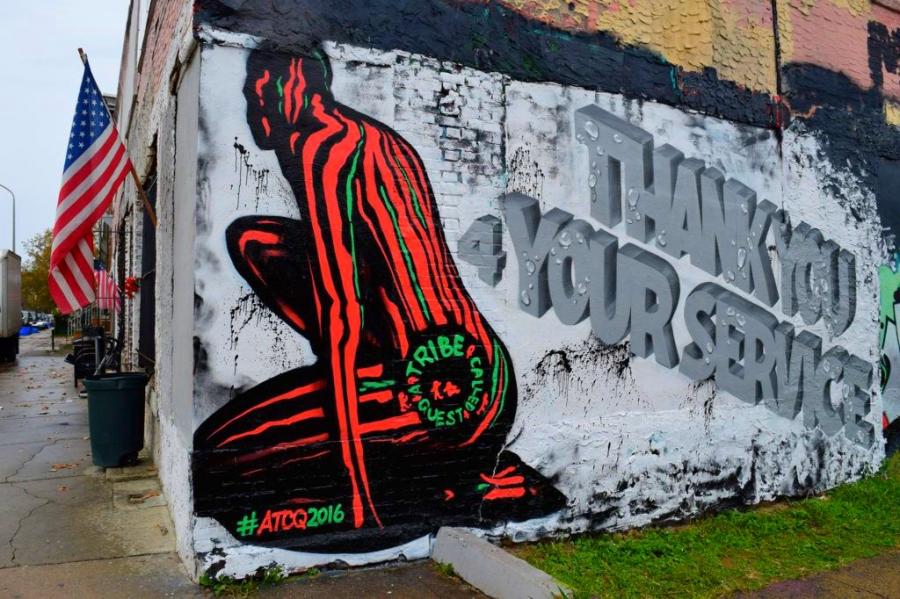
Figure 7: A Tribe Called Quest Graffiti after the albums release
5 Year Retrospective: Unity and Inclusion with Generational Faith
This album manages to highlight important social discussions surrounding minority injustices and advocates for unity and inclusion among all types of people, all while this clear vision is supported by light-hearted wittiness, and the groovy, timeless sound that people have come to love of the group.
The title of A Tribe Called Quest’s last album has no real meaning according to Q-Tip. In an interview with NY Times he reveals that Phife Dawg had made up the title ‘’We Got It From Here… Thank You 4 Your Service’’ before he passed away, but he never got to explain its meaning. The group decided to keep the title to honour Phife’s decision, but funnily enough it might be perfect for an album centred around unity and generational faith. It could be interpreted as something the younger generation of artists tells to veterans like Tribe: we thank you for your inspirational body work, we will carry on the legacy. And that is exactly what A Tribe Called Quest wants, for a new generation of artists to continue hip-hop’s legacy to be an introspective, socio-culturally critical, yet amazingly fun art form.
In retrospective, A Tribe Called Quest’s final album belongs to music’s best comebacks and closers. 5 years later, the album proves to still be relevant and it will continue to inspire listeners for many years to come. The world needs albums like this to spark important discussions among humanity, and while we might not be getting anymore gems from ATCQ, they themselves most certainly believe that a new generation of artists will more than deliver.
References
A Tribe Called Quest. (2016, November 11). We got it from Here. . . Thank You 4 Your service. Genius.
Touré. (2016, November 2). Loss Haunts A Tribe Called Quest’s First Album in 18 Years. The New York Times.
We Got It from Here. . . Thank You 4 Your Service. (n.d.). YouTube.